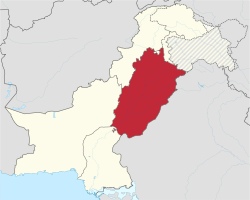Empirical Study to Estimate the Economic Effects of the Introduction of PTI in Punjab (Pakistan)
Dr. Wolfgang H. Schulz and Mr. Oliver Franck from the Corporate Management & Economics, Zeppelin University, Friedrichshafen, Germany recently published in the Open Transportation Journal their findings on the effects of roadworthiness testing on the reduction of traffic accidents and fatalities in the Pakistani state of Punjab.
The main aim of their study is to provide the economic impact analysis of the introduction of a periodical technical inspection (PTI) system that acts as a basis for political decision-making. The objective was to assess the feasibility and effectiveness of introducing a PTI in the region of Punjab. To this end, a benefit-cost ratio was calculated and it was determined whether the PTI would have a positive economic impact on the region. Throughout the analysis, cutting-edge empirical methodologies were used to provide a structured approach to an accurate assessment of the benefit-cost ratio of introducing the PTI system.
According to the analysis, the implementation of a PTI together with an emission test would yield a benefit-cost ratio of 12.45. A benefit-cost ratio of 10 means that one dollar invested in the PTI results in an economic benefit of $10 in Punjab. Moreover the implementation of PTI would have a significant and measurable effect on the reduction of road accidents in the region.
The list of potential benefits is not exhaustive, as other effects, like noise reduction, could not be considered due to missing data. Despite considering a limited list of benefits, a high BCR has been demonstrated, which argues for the introduction of the PTI and its favourable impact on the economic welfare of Punjab.

